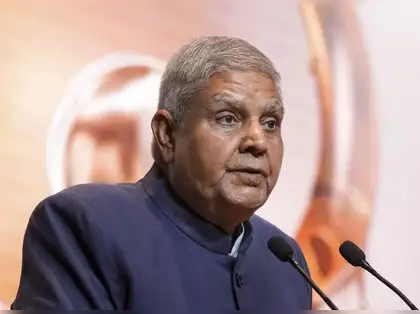On July 21, 2025, Vice President Jagdeep Dhankhar submitted his resignation letter to the President of India. In doing so, he invoked Article 67(a) of the Indian Constitution, a rarely discussed but powerful provision that allows the Vice President to step down voluntarily.
But what exactly does this article mean? Why did he invoke it? And what happens next?
Let’s explore.
📜 Understanding Article 67(a) – In Simple Terms
Article 67 of the Indian Constitution talks about the term and resignation of the Vice President. Specifically, Clause (a) says:
“The Vice President may resign from office by writing under his hand addressed to the President.”
In short, Article 67(a) of the Indian Constitution gives the Vice President the constitutional right to resign at any time by simply submitting a written letter to the President.
It does not require any approval from Parliament or debate. It is a personal, voluntary, and direct step.
💬 Why Did Jagdeep Dhankhar Invoke Article 67(a)?
Jagdeep Dhankhar’s decision to resign came as a surprise. He had over two years left in his term.
While his official reason was health concerns, his action highlights how Article 67(a) of the Indian Constitution can be used when a Vice President feels unfit or unwilling to continue their duties.
This makes Article 67(a) not just a legal option, but a humane and respectful way to step away from the second-highest constitutional office in India.

🧭 What Happens After a Vice President Resigns?
Once the Vice President uses Article 67(a) to resign:
1. Immediate Vacancy
The office becomes vacant as soon as the resignation is submitted and accepted.
2. Temporary Replacement
Until a new Vice President is elected, the Deputy Chairman of the Rajya Sabha may carry out chair duties in the Upper House.
3. New Election
A new Vice President must be elected within 6 months to avoid disruption in the constitutional system.
This transition is smooth and automatic, which reflects the strength of India’s constitutional framework.
🕰️ How Often Is Article 67(a) Used?
Very rarely. Only a few Vice Presidents in India’s history have stepped down before completing their term. That’s why Article 67(a) of the Indian Constitution is often overlooked in public discussions—until a moment like this arises.
This rare invocation reminds us that every Article in the Constitution has real-world value, even if it isn’t used often.
🧠 Why Article 67(a) Matters Today
- It respects personal well-being and voluntary choice.
- It keeps the resignation process dignified and clean.
- It ensures the smooth functioning of Parliament, even in times of leadership change.
In a democracy like India, the Constitution is not just a legal book—it’s a living document that supports both governance and individual integrity.
📝 In Summary
| Key Point | Detail |
|---|---|
| Article 67(a) | Allows Vice President to resign by writing to President |
| Who Used It Recently | Jagdeep Dhankhar, July 21, 2025 |
| Reason | Health concerns |
| What Happens Next | New VP election within 6 months |
❤️ Final Thought
The use of Article 67(a) of the Indian Constitution by Jagdeep Dhankhar is a reminder that power also comes with responsibility—and the right to step away when necessary. This graceful exit, protected by law, upholds the dignity of both the person and the post.
must read – atozfunda.com